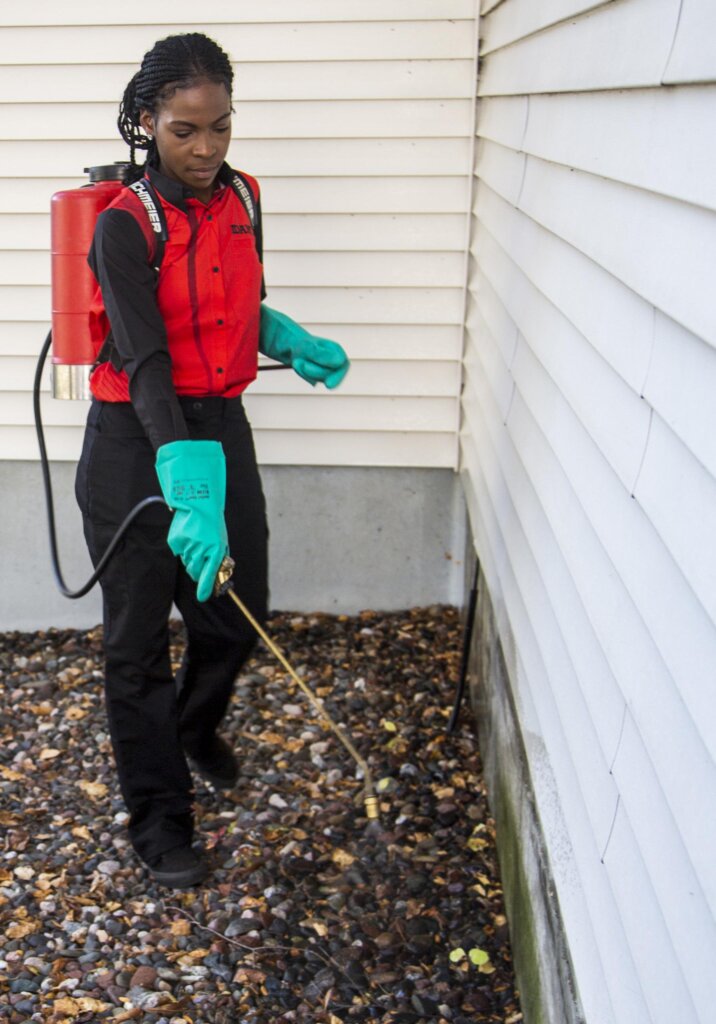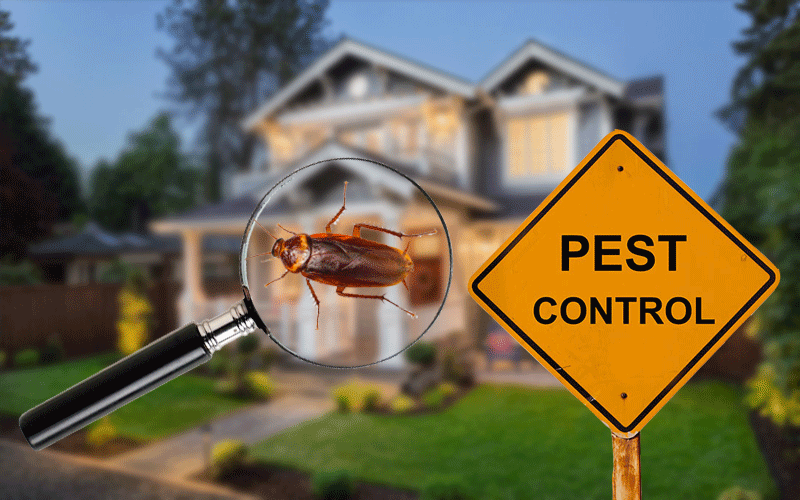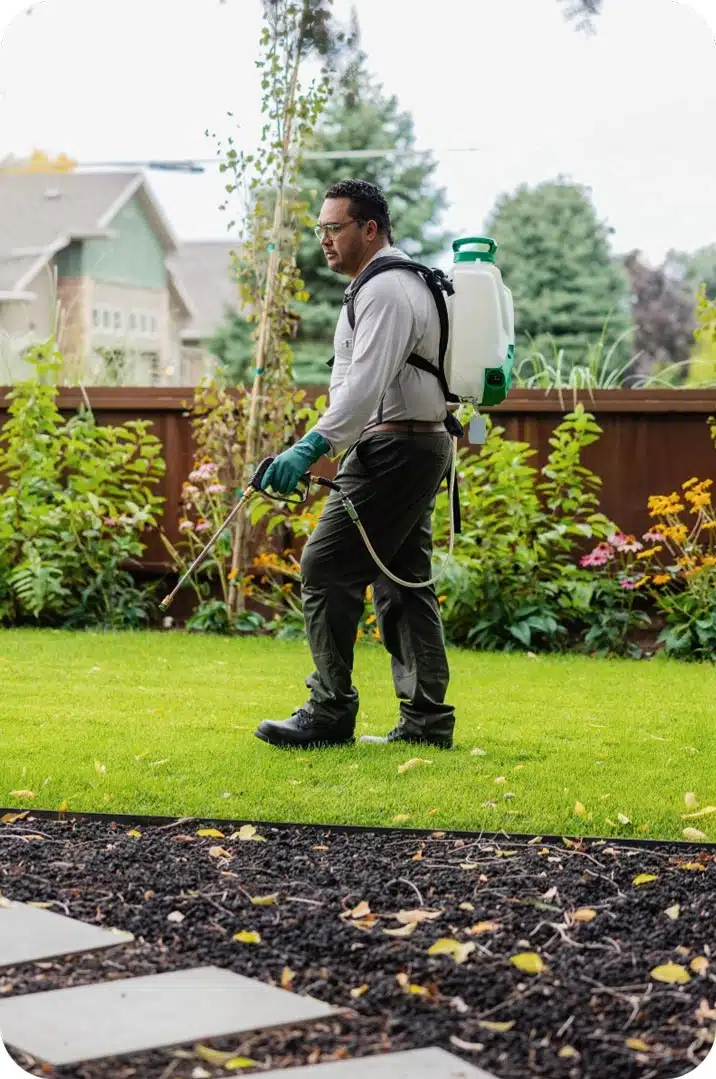The Ultimate Overview to Eco-Friendly Insect Removal Techniques for Sustainable Living
In the realm of lasting living, the pursuit for effective yet eco-friendly pest control approaches is a paramount concern for several diligent individuals. The fragile equilibrium between removing unwelcome intruders and protecting the ecosystem can be a challenging one to browse. In this guide, we will check out a variety of environmentally friendly pest elimination methods that not only address pest concerns however likewise support the concepts of sustainability. From all-natural repellents to the strategic use useful pests, each method uses a special method to taking care of parasites without causing harm to the setting. By adopting these eco-conscious techniques, individuals can develop a harmonious conjunction with nature while protecting their home.
All-natural Repellents
When looking for environment-friendly bug removal methods, using natural repellents can be a extremely reliable and lasting approach. Natural repellents are compounds originated from plants, minerals, or various other normally taking place resources that deter insects without triggering damage to the setting, human beings, or non-targeted wild animals. These repellents function by emitting fragrances or generating preferences that pests find unpleasant, driving them away from the location. Usual natural repellents include important oils like peppermint, tea, and citronella tree oil, in addition to materials like diatomaceous earth, vinegar, and chili powder.
One substantial benefit of natural repellents is their minimal effect on the ecosystem. Unlike chemical pesticides that can stick around in the atmosphere and harm advantageous pests, natural repellents tend to biodegrade promptly and posture little threat to non-targeted microorganisms. In addition, natural repellents are typically readily available, budget-friendly, and simple to make use of, making them obtainable to a variety of people seeking to deal with pest concerns in an eco-friendly manner. By including all-natural repellents right into pest monitoring strategies, individuals can properly regulate bugs while advertising sustainability and eco-conscious techniques.
Beneficial Insects
Beneficial insects play an important function in preserving environmental balance and sustaining lasting bug administration methods. These bugs are natural predators of numerous typical garden pests, helping to keep their populaces in check without the requirement for unsafe chemicals.
Presenting advantageous insects to your garden can help in reducing the requirement for synthetic chemicals, advertising a more eco-friendly and lasting method to pest control. By bring in these natural predators via making use of friend planting, providing ideal habitats, and staying clear of making use of chemical insecticides that damage both insects and advantageous insects, you can develop a balanced ecosystem where parasites are regulated normally. Encouraging biodiversity in your garden by inviting helpful bugs not only helps shield your plants yet also adds to the total health and wellness of the environment.
Mechanical Catches
In the realm of eco-friendly pest elimination techniques, one effective approach entails the application of mechanical traps. These catches are made to record bugs without the use of harmful chemicals, making them a risk-free and eco-friendly choice for insect control. Mechanical traps come in various forms, consisting of snap traps, live traps, and electronic catches, each offering a specific function in bug elimination.
Live catches, on the various other hand, are made to record parasites alive so they can be released back into the wild unharmed. These traps are suitable for bigger bugs like squirrels or raccoons.

Organic Controls
The use of natural predators or microorganisms to manage insect populations is a sustainable and ecologically mindful approach understood as organic controls. By harnessing the power of nature's own checks and equilibriums, biological controls provide a targeted and effective method of pest monitoring without using unsafe chemicals.
One usual kind of biological control is the introduction of all-natural predators to fight pest populaces. For instance, ladybugs are commonly released right into yards to manage aphids, while certain varieties of wasps are utilized to manage caterpillar problems. These predators prey on the bugs, helping to normally control their numbers and lower damage to plants.
Another organic control method entails utilizing pathogens such as fungis, bacteria, or infections to infect and eliminate pests. These microorganisms specify to the target pest and do not hurt various other valuable organisms or the setting. For example, Bacillus thuringiensis (Bt) is a naturally taking place soil microorganism that is used to regulate caterpillars and certain sorts of beetles.
Eco-Friendly Pesticides
Using ecologically secure click over here now pesticides is crucial in keeping a balance between reliable bug control and eco-friendly sustainability. Environmentally friendly chemicals, additionally recognized as natural chemicals, are originated from natural resources and made to target specific pests while reducing harm to advantageous bugs, animals, and the environment (King pest exterminator). These pesticides are created to damage down swiftly, minimizing the danger of polluting soil and water sources
One common environment-friendly chemical is neem oil, drawn out from the seeds of the neem tree, which functions as a repellent, antifeedant, and disruptor of insect growth. One more all-natural option is diatomaceous planet, a powder made from fossilized algae that harms the exoskeletons of pests. Furthermore, insecticidal soaps and oils derived from plants like pepper mint, thyme, or rosemary can effectively control bugs like caterpillars, mites, and aphids.

Verdict

In this guide, we will explore a range of environmentally friendly bug removal methods that not only address parasite problems yet likewise promote the concepts of sustainability. By including all-natural repellents right into parasite monitoring techniques, individuals can properly manage insects while advertising sustainability and eco-conscious techniques.
By bring in these all-natural predators via the usage of buddy planting, offering suitable environments, and avoiding the use of chemical pesticides that damage both bugs and beneficial pests, you can Recommended Site create a well balanced ecosystem where bugs are controlled naturally. These catches are made to capture bugs without the usage of damaging chemicals, making them a secure and ecologically pleasant option for bug control. By utilizing all-natural repellents, beneficial bugs, mechanical catches, biological controls, and eco-friendly chemicals, people can efficiently take care of bug populations without harming the atmosphere.